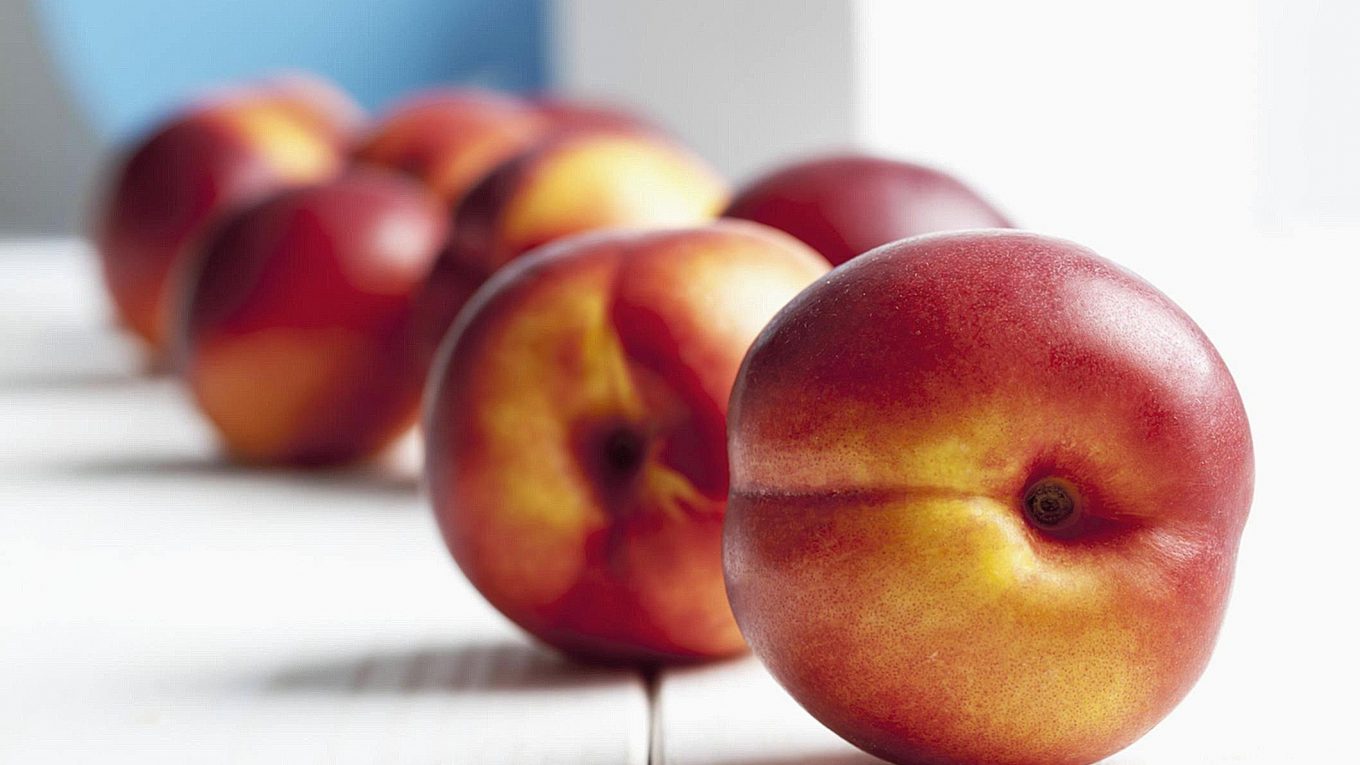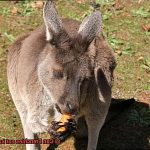Can Frenchies eat peaches or nectarines?
Today, we’re diving into a juicy topic that might have crossed your mind: can our adorable French Bulldogs chow down on the sweet goodness of peaches and nectarines? As responsible owners, we always want to make sure our furry pals have a safe and nourishing diet. So, let’s explore the world of nutrition together and uncover whether these summertime fruits are a go or a no for our brachycephalic buddies.
Frenchies are known for their unique dietary needs and sensitive tummies. That’s why it’s crucial for us to know what’s safe and healthy for them to munch on. Now, don’t get us wrong – fruits can be fantastic additions to your pup’s menu. But some can be risky if not given responsibly. So, before you start slicing up those peaches or nectarines, let’s educate ourselves about any potential dangers.
In this blog post, we’ll cover all the essential factors you need to consider when introducing these fruits to your Frenchie’s diet. We’ll take a deep dive into their nutritional value, talk about any possible benefits they bring, and address concerns like allergies or tummy troubles. By the time we’re done here, you’ll have a crystal-clear answer on whether these tasty treats should make it onto your furry friend’s plate.
So grab a seat, relax, and join us on this fruity adventure. Together, we’ll discover if Frenchies can happily munch on peaches and nectarines or if these delightful snacks are better left for human enjoyment only. Let’s get started.
What Nutrients Do They Provide?
Contents
- 1 What Nutrients Do They Provide?
- 2 Is Cyanide Present in Peaches and Nectarines?
- 3 Are Peaches and Nectarines Safe for French Bulldogs to Eat?
- 4 How to Prepare Peaches and Nectarines for Frenchies
- 5 Potential Health Risks of Feeding French Bulldogs Peach or Nectarine Flesh
- 6 The Dangers of the Peach or Nectarine Pit
- 7 Allergic Reactions to Peaches or Nectarines in French Bulldogs
- 8 Tips for Feeding Peaches or Nectarines to Your Frenchie
- 9 Conclusion
French Bulldogs, or Frenchies as they are lovingly called, are a cherished part of many families. As responsible pet owners, we want to provide them with a balanced and nutritious diet. But can Frenchies safely enjoy the juicy goodness of peaches and nectarines? Let’s dive into the world of fruits and explore the nutrients these fruits provide for our beloved four-legged friends.
Delicious and Nutritious:
Peaches and nectarines are not only delicious but also packed with nutrients that can benefit Frenchies. Here’s a breakdown of the nutrients these fruits offer:
- Low in Calories: Both peaches and nectarines are low in calories, making them a great choice for Frenchies who need to watch their weight.
- Dietary Fiber: These fruits are rich in dietary fiber, which aids in digestion and helps prevent constipation. Fiber also provides a feeling of fullness, which can help prevent overeating.
- Vitamin C: Peaches and nectarines are bursting with vitamin C, an antioxidant that supports the immune system and promotes healthy skin.
- Vitamin A: These fruits contain vitamin A, which is essential for maintaining good vision and a healthy coat.
- Potassium: Peaches and nectarines are a good source of potassium, an electrolyte that helps regulate fluid balance in the body. Potassium is also important for proper nerve and muscle function.
- Calcium, Iron, and Magnesium: These fruits provide small amounts of calcium, iron, and magnesium, which are all vital for various bodily functions.
Moderation is Key:
While peaches and nectarines offer several health benefits, it is crucial to remember that moderation is key. Too much fruit can lead to digestive upset or diarrhea due to their high sugar content. It is recommended to introduce these fruits gradually into your Frenchie’s diet and monitor their reaction.
Consult Your Veterinarian:
As always, it is essential to consult with your veterinarian before introducing any new food into your Frenchie’s diet. They can provide personalized guidance based on your dog’s individual needs and health conditions.
Is Cyanide Present in Peaches and Nectarines?
We all know how much our furry friends enjoy a tasty treat, especially when it comes to fruits. But when it comes to peaches and nectarines, some pet owners have concerns about the presence of cyanide. So, let’s dive into the juicy details and separate fact from fiction.
Cyanide is a naturally occurring toxic substance that can be found in various fruits, including peaches and nectarines. However, before you panic, let me assure you that the levels of cyanide in these fruits are usually minimal and generally not harmful to dogs like our Frenchies, as long as they are consumed in moderation.
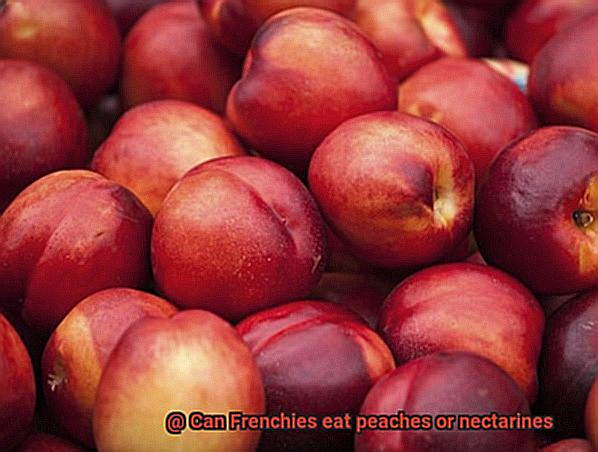
You see, cyanide is primarily found in the seeds of stone fruits, including peaches and nectarines. These seeds contain a compound called amygdalin, which can release cyanide when metabolized. But here’s the good news – the amount of amygdalin present in peach and nectarine seeds is relatively low compared to other fruits like apples or apricots.
But what about the flesh of these fruits? Well, it does contain trace amounts of amygdalin, but it’s unlikely to cause any harm to our Frenchies if they consume small quantities. Your Frenchie would need to eat a significant amount of peach or nectarine flesh and chew on multiple seeds to potentially experience any toxic effects from cyanide.
However, let’s not forget that every dog is unique, and some may have more sensitive stomachs than others. If your Frenchie has a delicate tummy or a history of digestive issues, it might be best to skip the peaches and nectarines altogether.
And here’s another important tip for you – always remove the seeds before giving your Frenchie any peach or nectarine slices. The hard seed can pose a choking hazard or cause intestinal blockage if swallowed whole. We definitely want to avoid any emergencies, don’t we?
So, if you want to treat your Frenchie to the sweet taste of peaches or nectarines, start with small amounts and keep a close eye on their reaction. Look out for any signs of tummy troubles like vomiting, diarrhea, or loss of appetite. If you notice anything concerning, stop feeding them these fruits and reach out to your vet for further guidance.
In conclusion, while there is a small amount of cyanide present in peaches and nectarines, it’s generally not harmful to Frenchies when consumed in moderation. Just remember to remove the seeds and monitor your Frenchie for any adverse reactions. And as always, it’s a good idea to consult with your veterinarian before introducing any new food into your Frenchie’s diet.
Are Peaches and Nectarines Safe for French Bulldogs to Eat?
Picture this: you’re sitting outside on a warm summer day, enjoying a juicy peach or nectarine. Your adorable French Bulldog, with those big, expressive eyes, is looking up at you, hoping for a tasty treat. But before you give in to those pleading eyes, let’s take a closer look at whether peaches and nectarines are safe for your furry friend.
The Cyanide Conundrum:
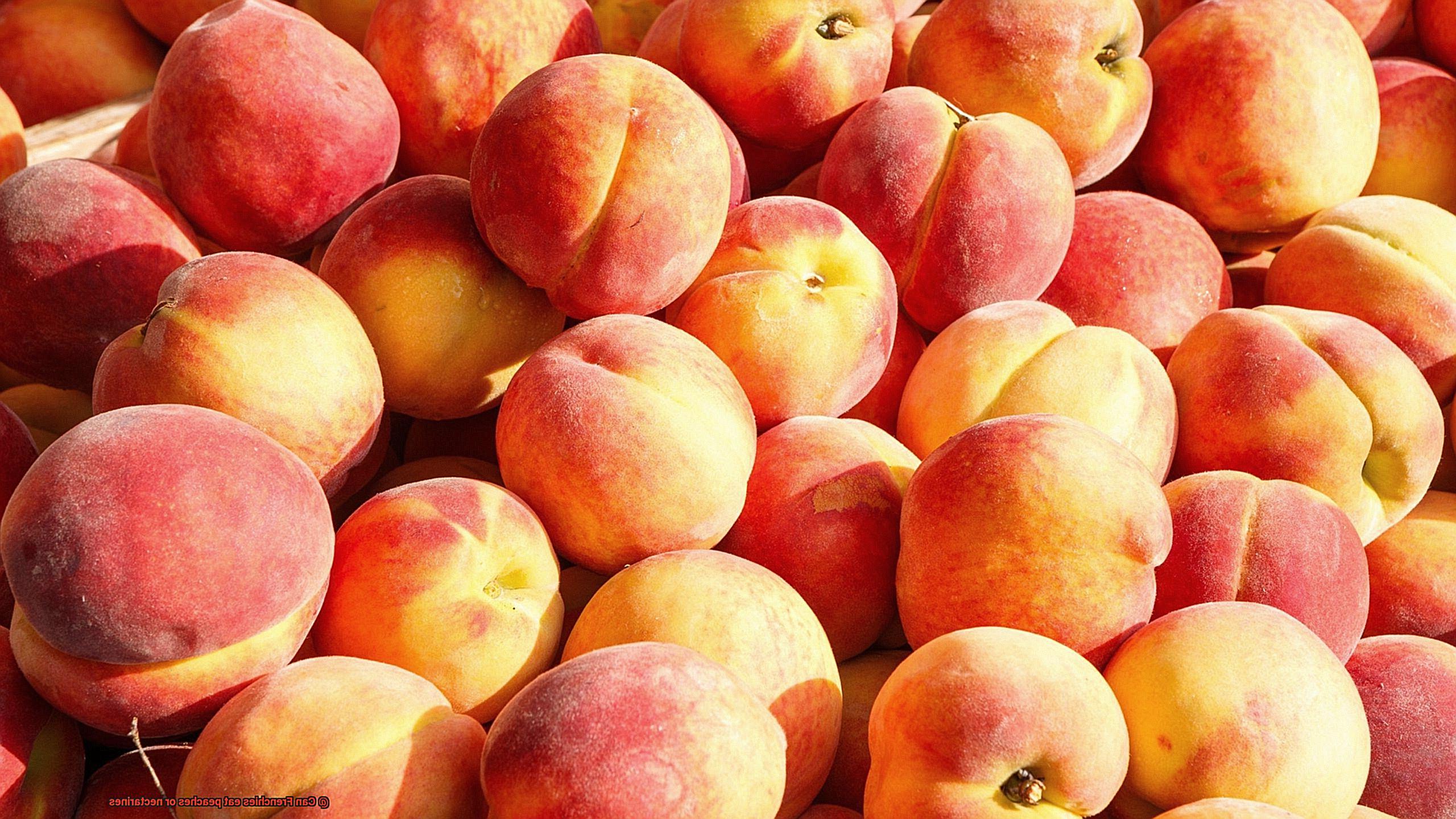
Both peaches and nectarines contain a compound called amygdalin, which can break down into cyanide when ingested. Cyanide is toxic to dogs and can cause serious health issues like difficulty breathing, seizures, and even death. While the amount of amygdalin in these fruits is relatively low, it’s still crucial to be cautious.
Choking Hazards:
Another concern when feeding peaches and nectarines to French Bulldogs is the risk of choking. These fruits have pits in the center that can be a choking hazard for dogs. And let’s not forget that French Bulldogs have a unique flat-faced anatomy that can make swallowing certain foods more challenging.
Digestive Distress:
If you do decide to share a peach or nectarine with your Frenchie, make sure to remove the pit and any tough skin or rind. The skin can be difficult for your dog to digest and may cause gastrointestinal upset like diarrhea or vomiting.
Introduce Gradually:
Always introduce new foods gradually and in small quantities, keeping a close eye on any signs of adverse reactions or allergies such as itching, swelling, or gastrointestinal distress. If anything seems off, don’t hesitate to consult with your veterinarian.
Nutritional Considerations:
While peaches and nectarines offer some nutritional benefits for humans, they may not provide the same advantages for our furry friends. French Bulldogs have specific dietary requirements that are best met by feeding them a balanced and appropriate dog food diet.
In conclusion, it’s safer to err on the side of caution and avoid feeding peaches and nectarines to your French Bulldog. The potential risks of cyanide poisoning, choking hazards, and digestive issues outweigh any potential benefits. Remember, always prioritize your Frenchie’s health and consult with your veterinarian if you have any concerns or questions about their diet.
How to Prepare Peaches and Nectarines for Frenchies
French Bulldogs are lovable and playful companions that deserve the best care, including a healthy diet. While peaches and nectarines can be a tasty treat for humans, it’s important to know how to prepare them safely for your Frenchie. In this article, we will guide you through the steps to ensure that these fruits are safe and enjoyable for your furry friend.
Choosing the Right Fruit:
When preparing peaches and nectarines for Frenchies, it’s essential to choose ripe and fresh fruit. Look for ones that are firm but give slightly when pressed. Avoid fruits that are overripe or have blemishes, as they may not be as fresh and could potentially upset your Frenchie’s stomach.
Thoroughly Wash the Fruit:
Before feeding peaches or nectarines to your French Bulldog, wash them thoroughly under running water. This helps remove any dirt or chemicals that might be present on the skin. You can also use a soft brush to gently scrub the surface if needed. By washing the fruit, you’re ensuring that your Frenchie is not exposed to harmful substances.
Remove the Pit:
The pit of a peach or nectarine can pose a choking hazard and contains toxic compounds, so it’s crucial to remove it before serving the fruit to your Frenchie. To do this, cut the fruit in half along its natural indentation and twist the halves in opposite directions. Use a spoon or knife to scoop out the pit from each half.
Peel and Cut into Bite-Sized Pieces:
The skin of peaches and nectarines can be tough for Frenchies to digest, so it’s best to peel the fruit before feeding it to them. Make a small incision at the stem end of the fruit and peel away the skin using your fingers or a knife. Once peeled, cut the fruit into small, bite-sized pieces to make it easier for your Frenchie to chew and swallow.
Feed in Moderation:
While peaches and nectarines can be a healthy and tasty treat for French Bulldogs, it’s important to feed them in moderation. These fruits contain natural sugars that can contribute to weight gain if given excessively. Treat them as an occasional snack or mix them with your Frenchie’s regular food to add variety and flavor.
Monitor for Allergic Reactions:
Every dog is different, and some French Bulldogs may have sensitivities or allergies to certain fruits. When introducing peaches or nectarines into your Frenchie’s diet, monitor them closely for any signs of discomfort or adverse reactions. If you notice vomiting, diarrhea, or difficulty breathing, contact your veterinarian immediately.
Potential Health Risks of Feeding French Bulldogs Peach or Nectarine Flesh
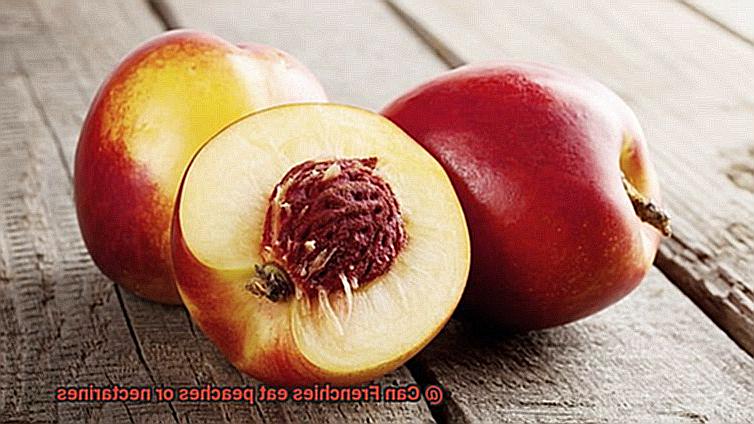
We all know how tempting it can be to share our favorite fruits with our furry friends. But when it comes to peaches and nectarines, it’s important to exercise caution. While these juicy fruits may make our taste buds dance, they can pose potential health risks to our beloved Frenchies. In this blog post, we’ll explore why feeding peach or nectarine flesh to French Bulldogs might not be the best idea.
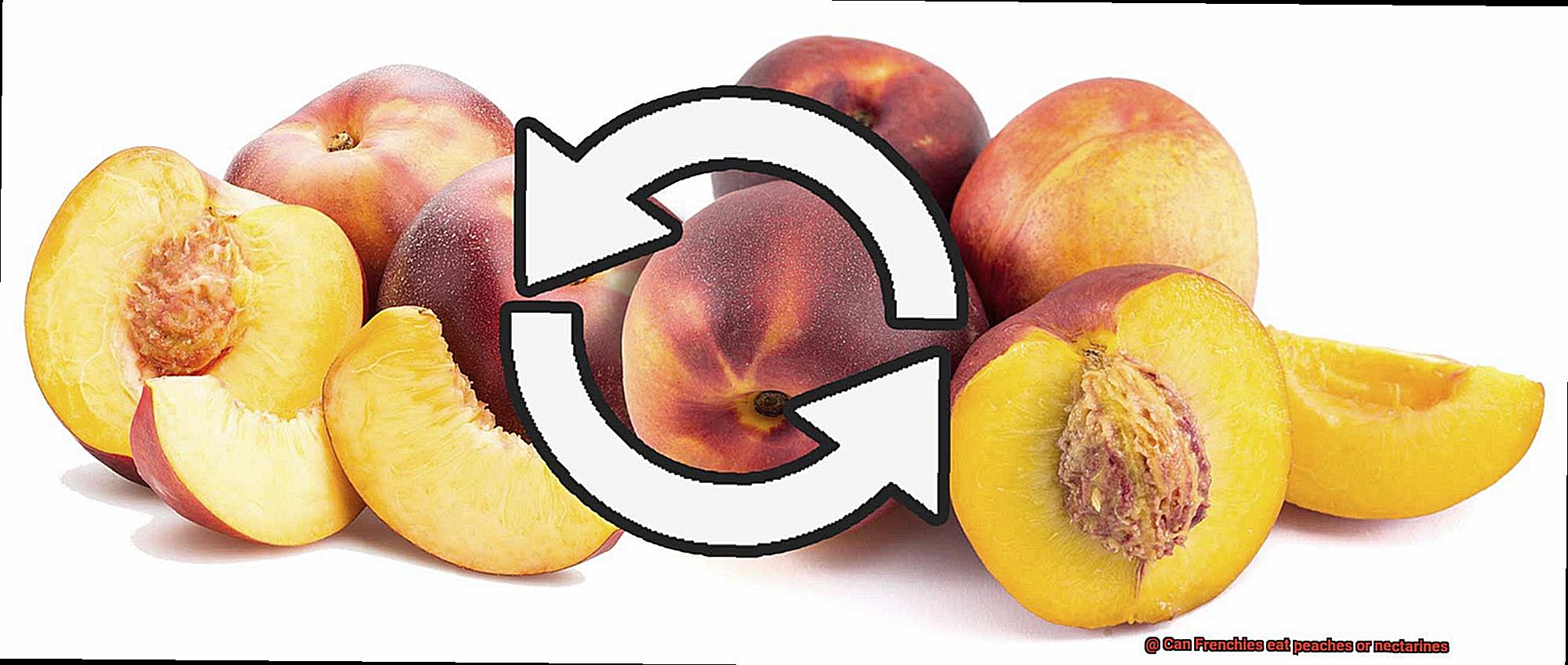
The Dangers of Amygdalin:
Peaches and nectarines contain a compound called amygdalin, which is also found in the pits of these fruits. When ingested, amygdalin can be metabolized into hydrogen cyanide – a highly toxic substance for dogs. While the flesh of the fruit doesn’t contain high levels of amygdalin, feeding a large amount to your French Bulldog could still put them at risk of cyanide poisoning.
Symptoms of Cyanide Poisoning:
Cyanide poisoning in dogs can have serious consequences. Keep an eye out for signs such as difficulty breathing, dilated pupils, bright red gums, dizziness, weakness, and even seizures or loss of consciousness in severe cases. If you suspect your Frenchie has ingested peach or nectarine flesh and is showing any of these symptoms, seek veterinary assistance immediately.
Gastrointestinal Issues:
Besides cyanide poisoning, peaches and nectarines can also wreak havoc on your Frenchie’s stomach. These fruits are high in sugar content, which can lead to upset stomach, diarrhea, and gas. While a small amount might not cause immediate harm, it’s always better to be safe than sorry.
The Perilous Pit Problem:
Let’s not forget about those pesky pits. If your French Bulldog accidentally swallows a pit, it can cause blockages in their digestive system. This can lead to serious complications that may require surgery. To prevent this, always remove the pits before offering any peach or nectarine flesh to your furry friend.
A Healthy Alternative:
To ensure the overall health and well-being of your French Bulldog, it’s best to stick to a balanced diet specifically formulated for dogs. Consult with your veterinarian regarding suitable treats and fruits that are safe for your Frenchie to enjoy.
The Dangers of the Peach or Nectarine Pit
Today, we’re going to talk about something that may surprise you – the dangers of the peach or nectarine pit. While these fruits may seem harmless to us, they can pose serious risks to our furry friends. So, let’s dig into the juicy details and ensure our Frenchies stay safe.
Choking Hazards and Dental Damage:
Picture this: your Frenchie enthusiastically munching on a peach or nectarine pit. Sounds cute, right? Well, not so fast. These pits have a hard shell that can be a choking hazard if swallowed whole. And if your Frenchie manages to chew on it, their teeth could be in for a rough ride. The tough shell can cause fractures or cracks in their precious pearly whites. Ouch.
Gastrointestinal Blockage:
Now, let’s get into the nitty-gritty of what happens when your Frenchie ingests a pit. These pits are not easily digestible and can get stuck in their digestive tract. This can lead to discomfort, pain, and even require surgery to remove the blockage. Trust me, nobody wants their Frenchie going under the knife for an avoidable situation.
Cyanide Surprise:
Here’s the real kicker – peach and nectarine pits contain a compound called amygdalin. When metabolized, this compound releases cyanide. While it may not harm humans in small amounts, it can be toxic to dogs, including our beloved Frenchies. Cyanide poisoning can cause symptoms like difficulty breathing, rapid heart rate, weakness, and even seizures. Yikes.
Prevention is Pawesome:
How can we keep our Frenchies safe from these potential dangers? It’s simple – be proactive. Keep those peaches and nectarines out of reach, and dispose of any pits properly. Don’t let your Frenchie’s curiosity get the better of them. Remember, prevention is always better than cure.
When in Doubt, Vet it Out:
If you suspect your Frenchie has ingested a pit or shows any symptoms of cyanide poisoning, don’t hesitate – seek immediate veterinary attention. A professional can assess the situation and provide the necessary treatment to keep your furry friend out of harm’s way.
While the flesh of peaches and nectarines is generally safe for Frenchies to enjoy in moderation, let’s not forget the potential dangers lurking within those pits. Protecting our furry pals from choking hazards, dental damage, gastrointestinal blockage, and cyanide poisoning is crucial. So, let’s be smart and avoid letting our Frenchies chew on peach or nectarine pits. Their health and happiness are worth it.
Allergic Reactions to Peaches or Nectarines in French Bulldogs
While these fruits can be a delicious and nutritious treat for humans, they can potentially cause allergic reactions in French Bulldogs. In this article, we will explore the potential allergic reactions to peaches or nectarines in French Bulldogs and discuss the necessary precautions that owners should take.
Understanding the Allergic Reactions:
French Bulldogs can experience allergic reactions to peaches or nectarines due to the high allergenic potential of these fruits. The most common allergic reaction is known as oral allergy syndrome (OAS), which occurs when the proteins in the fruit cross-react with pollen allergens. This can lead to symptoms such as itching or tingling in the mouth, throat, or ears, swelling of the lips or tongue, and in rare cases, difficulty breathing. Some French Bulldogs may also develop a skin rash or hives after consuming these fruits.
Precautions for French Bulldog Owners:
To keep your French Bulldog safe from allergic reactions to peaches or nectarines, it is essential to take certain precautions:
- Avoid Feeding Peaches or Nectarines: The simplest way to prevent allergic reactions is to avoid feeding your French Bulldog peaches or nectarines altogether. Instead, opt for safer fruits like apples, bananas, or blueberries.
- Be Cautious of Cross-Contamination: If your French Bulldog has a known allergy to peaches or nectarines, be mindful of cross-contamination. Ensure that their food and treats do not come into contact with peach or nectarine residue, as even small traces can trigger an allergic reaction.
- Seek Veterinary Attention: If your French Bulldog shows any signs of an allergic reaction after consuming peaches or nectarines, it is crucial to consult a veterinarian for proper diagnosis and treatment. In severe cases, emergency medical attention may be necessary.
Tips for Feeding Peaches or Nectarines to Your Frenchie
Tip 1: Remove the Pit and Skin
When feeding peaches or nectarines to your Frenchie, it is crucial to remove the pits and the skin. The pit contains a compound called amygdalin, which is toxic to dogs and can cause serious health issues if ingested. The skin, on the other hand, can be difficult for dogs to digest and may cause gastrointestinal problems. Therefore, it is essential to peel the fruit and remove the pit before offering it to your Frenchie.
Tip 2: Cut into Bite-Sized Pieces
French Bulldogs have small jaws, so it is important to cut the peaches or nectarines into small, bite-sized pieces. This will prevent choking hazards and ensure that your Frenchie can comfortably enjoy the fruit. Cutting the fruit into smaller pieces also makes it easier for your Frenchie to chew and swallow.
Tip 3: Monitor for Allergic Reactions
Some dogs may have allergies or sensitivities to certain fruits, including peaches or nectarines. If you are introducing these fruits to your Frenchie’s diet for the first time, it is recommended to monitor them closely for any signs of allergic reactions or digestive discomfort. Common symptoms may include itching, vomiting, diarrhea, or excessive gas. If you notice any adverse reactions, it is best to consult with your veterinarian before offering these fruits again.
Tip 4: Moderation is Key
Peaches and nectarines should only be offered as occasional treats and not as a staple in your Frenchie’s diet. While these fruits can provide some nutritional benefits, they should not replace a balanced and complete dog food. It is crucial to prioritize your Frenchie’s overall dietary needs and consult with your veterinarian for guidance on the appropriate amount of fruit to offer.
Conclusion
In conclusion, it is important to note that Frenchies can indeed enjoy peaches and nectarines, but with caution.
These juicy fruits provide a sweet and refreshing treat for our furry friends, packed with vitamins and minerals. However, it is crucial to remove the pits and seeds as they can pose a choking hazard or cause digestive issues.
Additionally, moderation is key when feeding fruits to Frenchies, as excessive consumption can lead to stomach upset or diarrhea. Always consult with your veterinarian before introducing any new foods into your Frenchie’s diet.
Remember, a balanced and well-rounded diet is essential for their overall health and well-being.
